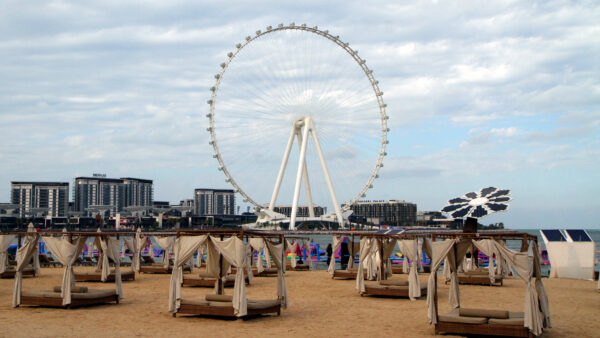There was rejoicing in court yesterday when Kenya’s environmental tribunal blocked a long-planned $2bn coal-fired power plant in Lamu, which was to be majority financed and built by China.
Judge Mohammed Balala “set aside” an earlier decision granting a licence to the developer, Amu Power, which aimed to build East Africa’s first coal station near the Lamu archipelago, an historic coastal area and tourism destination that includes a UNESCO World Heritage site.
Environmental and conservation campaigners have opposed the plant, saying it would pollute the air, destroy surface habitats, and hurt tourism and livelihoods in the region.
Speaking in Kenya’s National Environment Tribunal yesterday, Judge Balala ruled that Amu Power had submitted an incomplete environmental impact assessment, which ignored provisions of Kenya’s Climate Change Act, and had failed to provide an engineering plan for the project, local media reported.
He also said Amu Power had failed adequately to consult the public about its plans, which have been in train for about six years.

Petitioners from Lamu celebrating the judgment of the National Environment Tribunal, 26 June (Twitter/(@deCOALonize)
Balala ordered Amu Power to re-do the environmental assessment.
He gave the company 30 days to appeal.
“We’re now old, but we inherited a clean and healthy environment from our fathers, and it’s our duty to give our children a clean and healthy environment as well,” tweeted Mohammed Mbwana, vice chair of Save Lamu, a coalition of groups formed to oppose the plant.
“This is a big victory, this is a big day for Lamu people, it’s big day for Kenya, it’s a big day for Africa and it’s a big day for the world,” Mohamed Athman, a Save Lamu member, told AFP.Â
Amu Power is a special-purpose entity 51% owned by Kenyan investment firm Centum Investments. Other partners include Gulf Energy and a group of Chinese power companies including the state-owned giant, Power Construction Corporation of China (Power China), which received the contract to build the plant in 2016.

The bulk of the financing, $1.2bn, comes from a loan agreed in 2015 from the Industrial Commercial Bank of China.

Earlier this month, a report by the US-based Institute for Energy Economics and Financial Analysis said the plant would be a costly mistake and should be cancelled.
It said the power purchase agreement with the government would lock taxpayers into paying more than $9bn over 25 years even if the plant generated no power, and that the true cost of electricity from the 981-MW facility was 10 times higher than its proponents claimed.
The report urged the Kenyan government to develop cheaper and plentiful renewable energy sources instead.
Top image: A protest against the Lamu coal plant at the Ministry of Justice in Nairobi, 12 June (Twitter/(@deCOALonize)
Keep in touch with major infrastructure developments with GCR’s email newsletter
Comments
Comments are closed.







I am delighted to read that this ill conceived project has been, temporarily at least, stopped. There can be very few people in the world that are not aware of the significant damage caused to our environment by and through the burning of fossil fuels with coal being one of the worst offenders. The matter was made even worse by the blatant misrepresentation of facts concerning the environmental impact that was lodged with the Court by the developers, suggesting that they were very well aware of the unacceptable results that such a project would have.
If the Chinese are so keen to bring dependable power to the people of Kenya, they should invest their money in renewable energy such as solar power, wind power and the like. For that the Kenyans and the people of Africa would be most grateful!
Yes great news